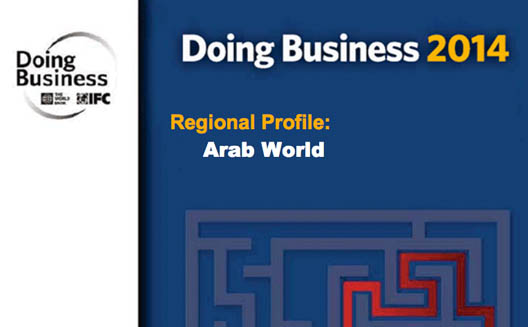World Bank and IFC's Doing Business 2014 report ranks Arab countries

Entrepreneurs in the Arab World might not be the luckiest compared to their peers in more developed regions, but entrepreneurs from the UAE, Saudi Arabia, Bahrain, Oman, Qatar, and Tunisia – the countries profiled in the World Bank and IFC’s recent Doing Business 2014 report – enjoy a more business friendly environment, and more flexibility in doing business and establishing small and medium sized companies.
In general, the report examines the difficulty of establishing and running a small or medium sized business, while abiding to local work laws and regulations in each of the 189 countries studied.
The report ranks countries based on how they perform in 11 different aspects of the business cycle: the business environment, starting a business, dealing with construction permits, getting electricity, registering property, getting credit, protecting investors, paying taxes, trading across borders, enforcing contracts, and resolving insolvency.
The region as a whole ranked highest in paying taxes, getting electricity, and registering property, while coming in behind on getting credit. Regionally, the UAE placed first in five different topics: starting a business, paying taxes, registering property, getting electricity, and trading across borders.
The Libyan ecosystem came in last of any country profiled worldwide, coming in at #187.
The report also highlighted positive change, giving credit to countries actively improving the conditions of doing business locally. Egypt, currently ranked 11th in the region, was mentioned for numerous improvements to the entrepreneurial ecosystem, including the lowering of the minimum capital needed to start a company to 50,000 EGP (around $7,100 USD), as well as cutting the costs of registering property.
The full report can be downloaded from the side box.


